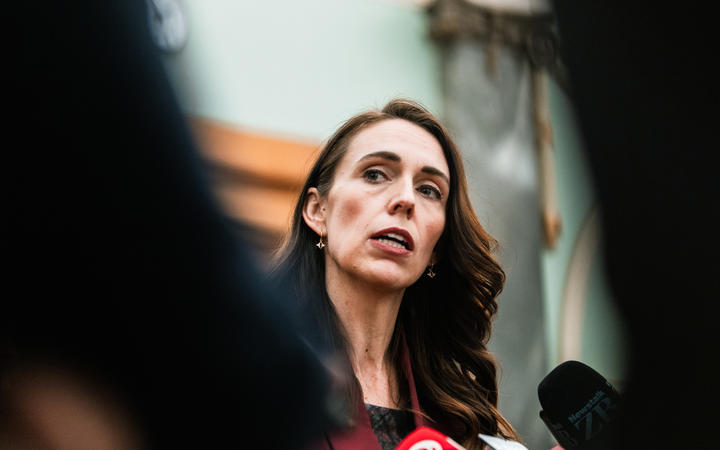It was a "major step" in the global fight against Covid-19, Ardern said at today's post-Cabinet press briefing with Director-general of health Dr Ashley Bloomfield.
"Today I can announce that Pharmac has signed an advance purchase agreement for 60,000 courses of Pfizer's oral antiviral treatment, which is now subject to Medsafe approval."
This was the second antiviral purchased by NZ, after another deal was signed in October.
Bloomfield said the Pfizer drug was a tablet and so could be taken in the community. It was very useful for people who were high risk but not needing hospital care.
"The key thing here is that it's another option for helping prevent people getting really unwell or dying. But at the moment the option that is, of course, available to everybody [who] is vaccinated."
Ardern said alongside vaccinations, hospital treatments were already reducing the likelihood of people needing ICU care, with ICU rates in Auckland dropping from the 5.7 percent of hospitalisations seen early in the pandemic to 3 percent.
She said treatments were just one part of the plan, however, and other parts of the strategy must be used to reduce the spread of Covid-19.
"Pfizer's new antiviral has a three-to-five-day window from the beginning of Covid symptoms to be effective - most effective from three days but still with efficacy up to five."
Preventing people from getting the virus in the first place through vaccination and public health measures was still the best way of preventing people from becoming sick with the virus and the possibility of having to go to hospital.
Ardern said New Zealand's total case numbers were about 12,000 - the lowest in all the OECD countries.

"But every percentage point helps, which means every vaccination helps ... if you haven't yet had your first make sure you talk to someone who has. Reach out, make sure you're having your questions answered - it's the number one thing you can do to make sure you have a safe Christmas and summer for you and your loved ones."
In a statement, Health Minister Andrew Little confirmed New Zealand had secured 60,000 courses of Pfizer's oral Covid-19 antiviral tablet, which overseas is called Paxlovid.
Medsafe has previously said it is "closely monitoring the developments of Covid-19-related pharmaceuticals overseas, seeking expert advice, and receiving regular updates from other medicines regulatory counterparts".
The pill, if taken early in a person's Covid-19 infection, can prevent people with mild symptoms from becoming very sick or dying.
It is similar to molnupiravir, another oral antiviral which the government had already pre-ordered 60,000 courses of, though that deal is conditional on Medsafe approval.
Antivirals like this are not thought to be effective for patients who have already gone into hospital.
Paxlovid, three pills taken twice a day for five days, was shown in studies to reduce hospitalisation by about 89 percent in early studies, with trials stopped early because it would be unethical to continue giving a placebo to people with Covid-19 when this drug was proving so effective.
Little said the $175 million allocated by the government for medicines and supply chain costs and $300m for purchasing more Covid-19 therapeutics made sure Pharmac could "continue to secure early access to new and promising Covid medicines as soon as possible".
"Both drugs are still subject to approval by Medsafe, but trials look promising, and by securing access to both we are doing everything possible to make sure New Zealanders have available medicines that are easy to administer and prevent most people who contract Covid-19 from being so sick they need to go to hospital."
He said vaccinations, mask use and contact tracing including through the Tracer app were still the best ways of stopping the spread of Covid-19 but it was also important to ensure there was a supply of medicine to treat those who did become ill.
Little said the drug was expected to be delivered to New Zealand in April, once approved by MedSafe.
Omicron
On the Omicron variant, Bloomfield said there was "more speculation than fact".
More would be known about the strain in about a week, he said.
Ardern said it was too early to say if Omicron could affect future travel dates. Nothing had been changed, but if significant evidence was presented - for example around vaccine efficacy - then that would be looked at.
It was inevitable an Omicron case would arrive at the border, as Delta had. The key was ensuring it was handled at the border, Ardern said.
"It is a when, not an if."
On Omicron travel bans and why only African countries were on the list, Ardern said it was based on public health assessments and officials would be receiving an update later this week.
On calls for people to cancel their holidays over Covid concerns, Ardern said protections had been put in place.
"We are not asking people to stay home. We are asking people to follow the rules."
Ardern reiterated officials were not supporting calls for people to stay away from certain areas. Those concerns were why some areas were still in the red setting.
Bloomfield said the reason so much effort was put into vaccination rates was to allow people to get back to normal and travel again.
That was also why unvaccinated people would need to return negative tests.












